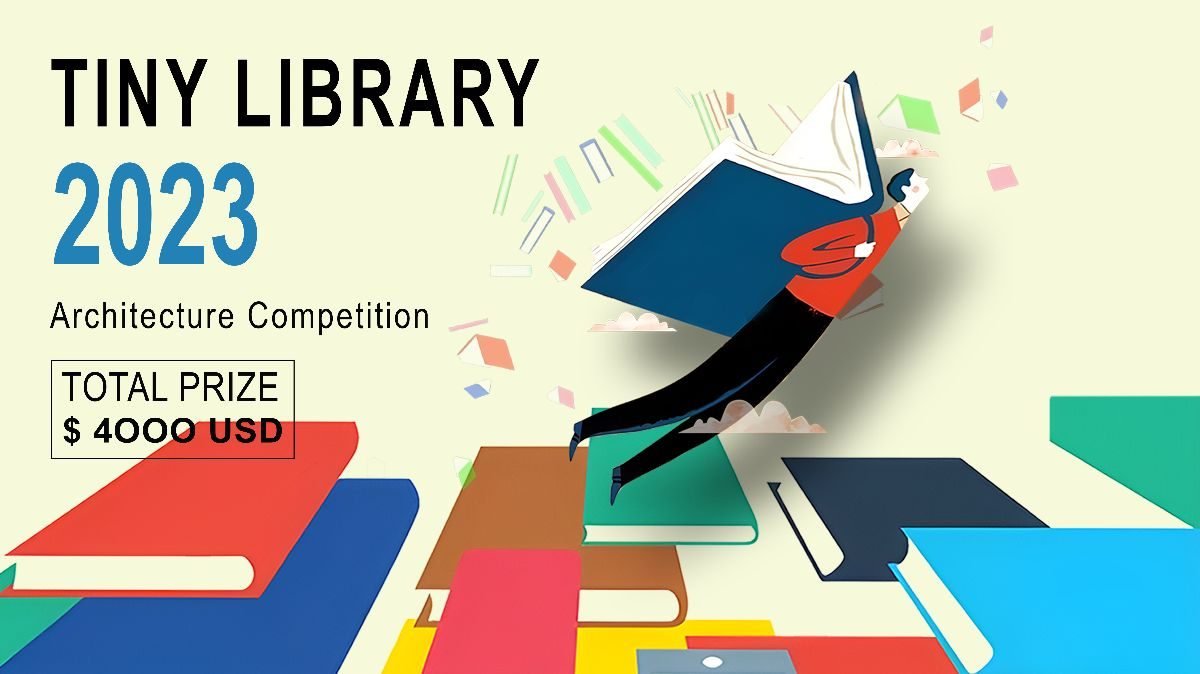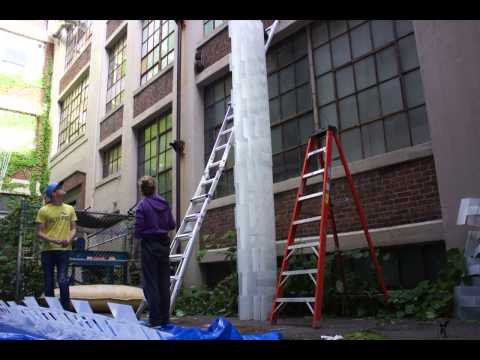Tiny Library 2023 Architecture Competition
Tiny Library 2023 Architecture Competition

As the world is continuously transforming and expanding, the amount of data and information created every day is also increasing constantly. Human intellect today is expected to evolve at the same rate as our world to continue our journey into the future. Despite all the information, reading and self-learning remain the most powerful tools available to mankind to consume knowledge. Learning bolsters awareness, exposure and productivity, which in turn results into development.
Despite its importance, education is still inaccessible to many communities in remote locations around the world. Civilization all across the globe has taken a major blow economically post the pandemic. From a substantial decline in income to an increase in the unemployment rate, the fear of facing a financial meltdown has been spreading in most parts of the world. While we face a future that we cannot foresee, the ability to adapt and learn is key. Self-learning, especially through reading, is crucial for the society’s development. It is important to power the growth of like-minded networks. It is necessary to have places promoting education and self-learning to educate the local population within the closest proximity. It will make them accessible to gainful employment opportunities in their home towns and will thereby avoid the need for migration elsewhere.
Opportunity:
Books are considered to be the torchbearers for knowledge, helping mankind develop its intellect and create a world that is constantly developing. With an aim to make education more accessible, we have transformed books to digital, audio and visual formats.
Despite all these efforts, books in any format are still inaccessible to various communities across our planet. It is now utterly important to focus on this lack of accessibility and prioritize towards creating a source of knowledge to isolated communities.
Libraries as an educational incubator is a space that not only sheds light on conventional means of knowledge but also encourages its users to interact, share ideas and grow together. Rather than accepting urban migration as a given, a library can be designed with an aim to restore dignity and induce development.
Can we rethink a library of the 21st-century public space where knowledge is not limited to books? Can we ignite the new age movement of learning?
“A room without books is like a body without a soul.” – Marcus Tullius Cicero (Roman statesman and philosopher)
Challenge:
Participants are to design a Tiny Library optimized for 75 users with engaging multifunctional spaces for all ages and spatial experience. The Tiny Library would be equipped with traditional reading material along with modern formats like ebooks, audiobooks, audio-visual books etc.
The space would be designed as a centralized think tank for the local communities with a focus on activities and functions of public interactions and community development.
Participants should consider affordability and optimum use of space while designing. The designed space should be augmented to hold a maximum number of books in a limited space. The structure should not exceed 300 sq.mt of built-up area.
The proposed design should also be easy to maintain. The proposal should be iconic, inviting, and creating a statement of its own on the chosen site. The proposed design should have contact between humans and nature.
The proposed designs can be visualized as mobile or stationary. One could also develop the given space as a flexible module that can be replicated so as to adapt to different site conditions making it versatile in nature. Participants will be required to provide a justification for their design choices.
The designed spaces should be innovative, encourage self-learning as well as strengthen the communal spirit. Energy saving and sustainability should be given a thought. We encourage the participants to develop their programs. The space designed should not be limited to the standard activities viz. reading and self-learning space, sanitation space, administration, reception or information desk. The design should provoke innovative activities that stimulate and accelerate learning.
Site Selection:
Rural populations across the globe face a mass exodus of its young population owing to the lack of education, health care, employment opportunities among many others.
Participants are to choose a site in a rural or remote context for the proposal, wherever they feel accessibility to knowledge may change the existing circumstance. The design should be well integrated into the context.
The site selected should be in a dire need of connecting to education and learning. The site should justify the participant’s design.
Schedule:
Early Bird Registrations:3rd March 2023 to 12th May 2023
Standard Registrations: 13th May 2023 to 15th June 2023
Last day for queries 12th June 2023
Closing date for Submissions: 23rd June 2023
Announcement of winners: 1st September 2023
Registration fees
Early Bird Registrations: Participants from India – 1800+18% GST = INR 2124 (per team) Participants from Other Countries – 70 + 18% GST = USD 82.6 (per team) Standard Registrations: Participants from India – 2400 + 18% GST = INR 2832 (per team) Participants from Other Countries – 85+ 18% GST = USD 100.3 (per team)
As the world is continuously transforming and expanding, the amount of data and information created every day is also increasing constantly. Human intellect today is expected to evolve at the same rate as our world to continue our journey into the future. Despite all the information, reading and self-learning remain the most powerful tools available to mankind to consume knowledge. Learning bolsters awareness, exposure and productivity, which in turn results into development.
Link to Registration form
Prizes of total USD 4000, broken down as follows:
1st Prize: USD 2000 + Certificate + Publication 2nd Prize: USD 1200 + Certificate + Publication 3rd Prize: USD 800 + Certificate + Publication
10 Honourable mentions: Certificates
Winners and Honourable Mentions will be published on Volume Zero website and several international architecture and design magazines.
To show our appreciation, all the participants would receive participation certificate.
Open to the public/Minimum requirements (Open to anyone that complies with the requirements), More than one stage (Winners selected after at least two selection phases)
TINY LIBRARY 2023 – Architecture Competition is open to all. We invite architects, students, engineers, product designers, thinkers, companies, organizations and everyone interested in the mission of the competition to submit their ideas. No professional qualifications are necessary.
Registration Opens March 3, 2023
Registration Closes June 15, 2023
Deadline to Submit Project June 23, 2023
Winners announcement Date September 1, 2023
Banner, Poster, Brochure or Triptic of Competition






